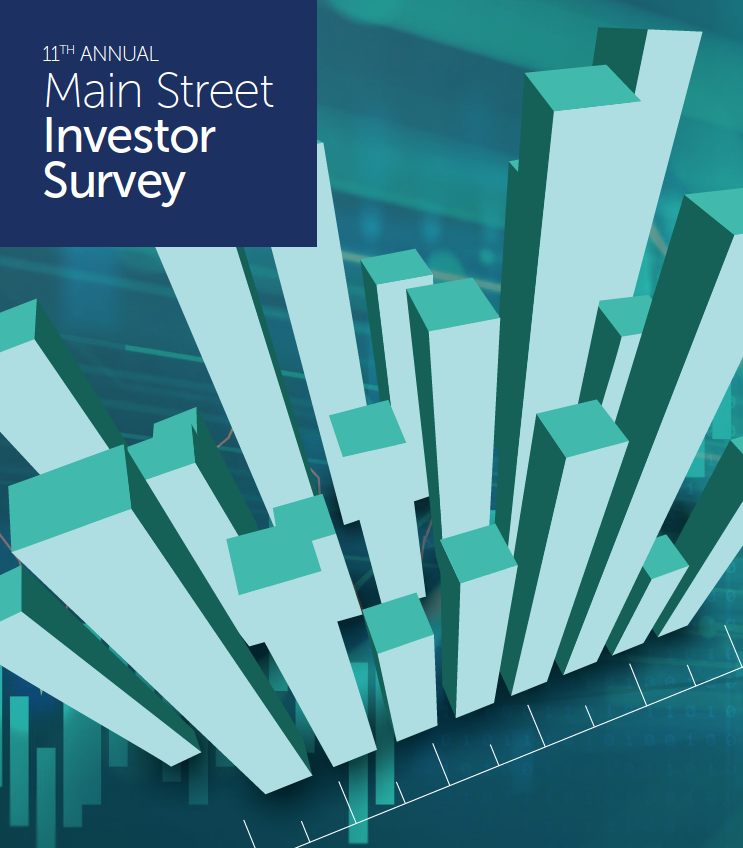We're hard-pressed to imagine a board legal expert more qualified than William Chandler, Former Chancellor of the Delaware Court of Chancery and now Partner at Wilson Sonsini Goodrich & Rosati. Chandler and our own TK Kerstetter sat down last week for a 'fireside chat' of sorts, which took place at a Boardroom Briefing at Nashville's Lipscomb University. The two governance experts compared their predictions for cyber risk, shareholder engagement, and director elections (among other topics). Sometimes their views were aligned; at other times, discussions took the form of ''theory vs. practice''.
In this post, we share key takeaways and talking points from just a portion of Chandler and Kerstetter's discussion: (1) As today's investors wield more influence, what expectations should boards have for director elections, shareholder activism, and diversity? (2) What legal considerations or precedents should boards be aware of regarding these topics?
 On November 16, we're hosting a one-hour panel discussion to dive further into the results of PwC's Annual Corporate Directors Survey and discuss what 886 directors had to say. We're giving you two ways to watch.
On November 16, we're hosting a one-hour panel discussion to dive further into the results of PwC's Annual Corporate Directors Survey and discuss what 886 directors had to say. We're giving you two ways to watch.

Director Elections & Universal Ballot
Fifteen years ago, the world of director elections was a different place. There was little majority voting in place, no say on pay, and staggered boards were very common. Under the Former SEC Chair Mary Jo White, the SEC proposed the mandated use of a universal ballot, which would allow shareholders to vote for individual directors (whether company or dissident nominees) as opposed to a slate. Can boards expect to see universal ballot in the years ahead?''I think it's quite doubtful,'' explained Chandler, providing legal precedent: ''Director elections are a fundamental underpinning of American corporate governance. Judges have upheld private ordering for boards to determine the format that director elections should take.''Chandler predicts that both companies and the Courts will wait to see how proxy access plays out first. They'll attempt to answer: (a) How often is proxy access used? (b) How successful is it when used?
''Directors aren't thermometers,'' said Chandler. ''Their job is not to take the temperature of the shareholders and act on it.'' The Delaware Court case, Air Products & Chemicals, Inc. v. Airgas, Inc., demonstrates the potential dangers of universal ballot, explained Chandler. The Courts ultimately held that the Airgas board, when faced with a hostile tender offer from Air Products, acted consistently with its fiduciary duty by resisting shareholder support for a purchase price the board determined was undervalued-a decision that proved wise when the company was sold four years later at double the share price. ''The election process works when directors are committed to the process,'' said Chandler.
Kerstetter, on the other hand, believes that boards will see universal ballot mandated once the administration changes-especially if NYC Comptroller Scott Stringer or other institutional investors have anything to say about it.
''The danger of universal ballot is that it injures succession planning,'' explained Kerstetter. A board may take all the right steps to recruit skill sets that align with its long-term strategy or groom committee chair successors; yet, all that careful planning can be upended in the course of an annual meeting.
Board Diversity
Board composition has been a primary focus of today's institutional investors, many of whom have pressed boards to improve diversity. In the 2017 proxy season, State Street Global Advisors was the first to take action as it voted against directors at 400 companies for their lack of progress; BlackRock reportedly took similar action against nominating & governance committee members this year.''The investor community is driving this initiative,'' said Chandler. ''Shareholders can't bring any legal cases regarding board diversity, as composition falls to the board.''The votes cast by State Street and BlackRock this year came as a surprise to many boards, who believed that the investors wouldn't take action on their diversity agendas until 2018. Thus, many boards are feeling the pressure to act swiftly, lest they receive another round of dissenting votes from these influential shareholders-with others expected to follow suit.
"These investors are looking very closely at 'board process,''' explained Chandler. ''What is your board evaluation process? What changes did you make as a result?''
Investors view the evaluation process as the board's best mechanism for improving performance and aligning skill sets, which is why they increasingly request related disclosure. ''Too often, boards conduct an evaluation, then fail to act on the results,'' explained Kerstetter. ''Board leadership is the key to making this process work effectively.''
Bringing in an outside facilitator at least every third year helps to minimize the bias of internal facilitators, said Kerstetter. When boards are conducting the evaluation process effectively, diversity of thought-and, in turn, diversity of gender, race, age, etc.-becomes a natural byproduct.
Shareholder Activism
Activists have undergone a significant rebranding in recent years. What used to be ''corporate raiders and barbarians'' has shifted to more innocuous nomenclature (e.g., ''activists and constructivists''). As activists wield more influence, however, the spectrum of sentiment remains broad and the stakes high-as highlighted by the recent proxy battle between Proctor & Gamble and Trian Partners' Nelson Peltz.''We've certainly seen a shift,'' said Chandler. ''In the 1970s, we saw strong CEOs and passive directors. The pendulum then swung to board independence. Now it's becoming very shareholder-centric.''Chandler predicts that American corporate law will have to shift its focus to activist shareholders, whose recent influence seems to outweigh their ownership stake. ''Should the Courts import some judgement about fiduciary duty to prevent activists from overstepping their influence?'' asked Chandler. ''I'm not sure what that will look like.''
''It used to be that good performance warded off activists,'' said Chandler. ''Now anyone with cash on the balance sheet can be targeted.'' Apple is a recent example.
''Investors are figuring out how to collectively change behavior in the boardroom,'' explained Kerstetter. While many of their initiatives are bringing about positive change (e.g., diversity, ESG), it's also a slippery slope.
Kerstetter recently wrote a counterpoint response to a Chief Executive article interviewing Jeffrey Sonnenfeld, senior associate dean for leadership studies at Yale School of Management. In the article, Sonnenfeld explained that the P&G vs. Peltz proxy battle represented ''a sea change-a major fork in the road signifying resolve and backbone in boards of directors to stand up and discourage activist short-termism.'' Kerstetter disagreed.
''While Sonnenfeld is focusing on the board's actions towards the activist, I think the real takeaway is that 50% of shareholders voted with Peltz,'' explained Kerstetter. ''That means 50% felt that P&G didn't have the track record or the strategy in place to lead the company forward. That's a big number.''
Furthermore, boards are hardly witnessing a sea change, explained Chandler: ''About 90% of activist incidents still result in a settlement. Very few go to a vote.''
The more important question to be asking: What's the impact of these settlements? Chandler discussed the interaction between Sotheby's and activist hedge fund Third Point Management, where a settlement has come at a great cost to the company and its shareholders, both financially and through potential information leakage.
Regardless of how corporate law plays out in the years ahead, one thing is for sure, said Kerstetter: ''Boards must start thinking like an activist. The way you gather, analyze, and disclose information should all be changing as a result of today's activist environment.''
In short, investors are exercising more influence (for better or worse), and key players in corporate governance must quickly adapt. Investor agendas on diversity, sustainability, and board composition are driving many positive changes in the boardroom, yet the dangers of influence loom equally large. We expect this powerplay to be a key theme in 2018, as we will continue to follow and discuss.
Click here for more resources on shareholder activism. And don't miss our November 16 panel, where institutional investors and board members will discuss these topics in real-time. Details below.
Don't Miss the Nov. 16 Panel Discussion Between Investors and Board Members:
 On November 16, we're hosting a one-hour panel discussion to dive further into the results of PwC's Annual Corporate Directors Survey and discuss what 886 directors had to say. We're giving you two ways to watch.
On November 16, we're hosting a one-hour panel discussion to dive further into the results of PwC's Annual Corporate Directors Survey and discuss what 886 directors had to say. We're giving you two ways to watch.
Panelists:

- Gabrielle Sulzberger, Board Member, Teva Pharmaceuticals and Brixmor Property Group; Former Chairman of the Board of Whole Foods
- Rhonda L. Brauer, Director of Corporate Engagement, Office of New York City Comptroller Scott M. Stringer
- Alan Guarino, Board Member, Chefs Warehouse
- Tracy Stewart, Senior Corporate Governance Analyst, Florida State Board of Administration (Florida SBA)
- Paul DeNicola (Moderator), Managing Director, PwC's Governance Insights Center

Media Highlights
Environmental, social and governance (ESG) issues have become more complex and multifaceted than ever before. At the same time, ESG continues to ascend on board and leadership agendas.
In this buyer’s guide, we explore what a market-leading ESG solution should look like and highlight the key areas organisations should be prioritising as they embark on their search.




